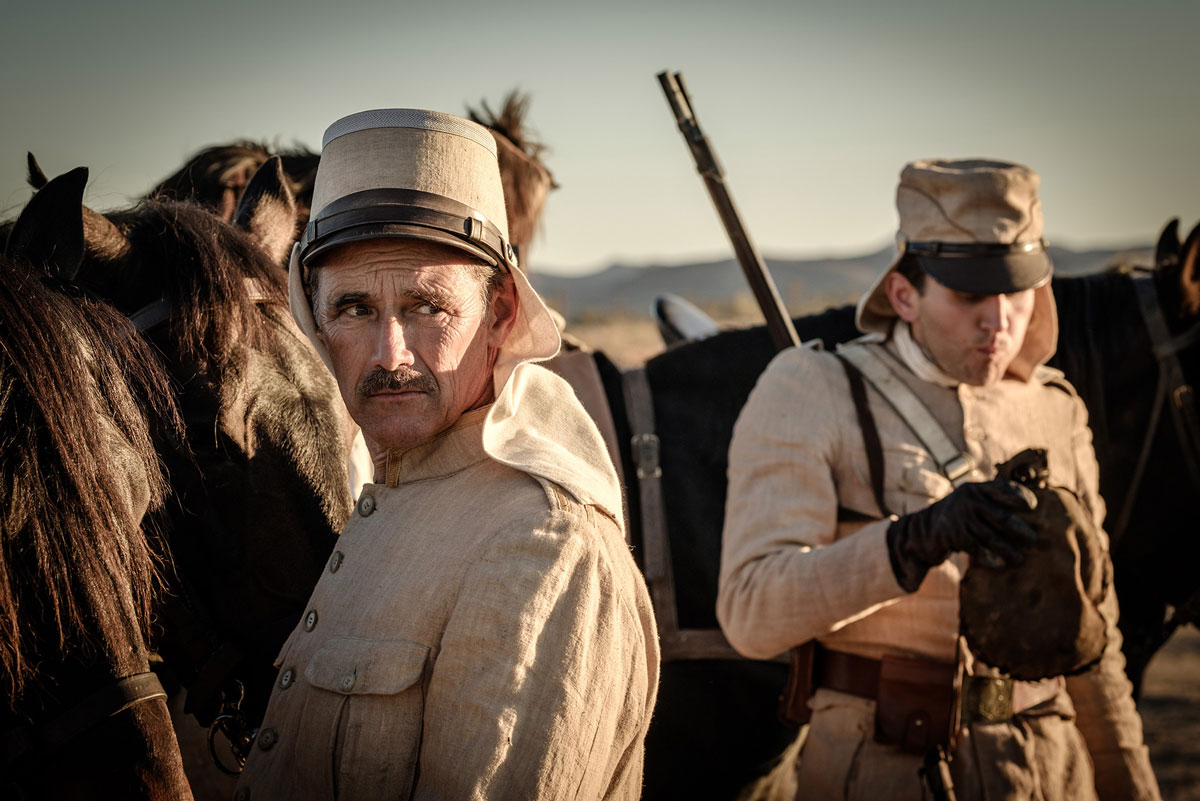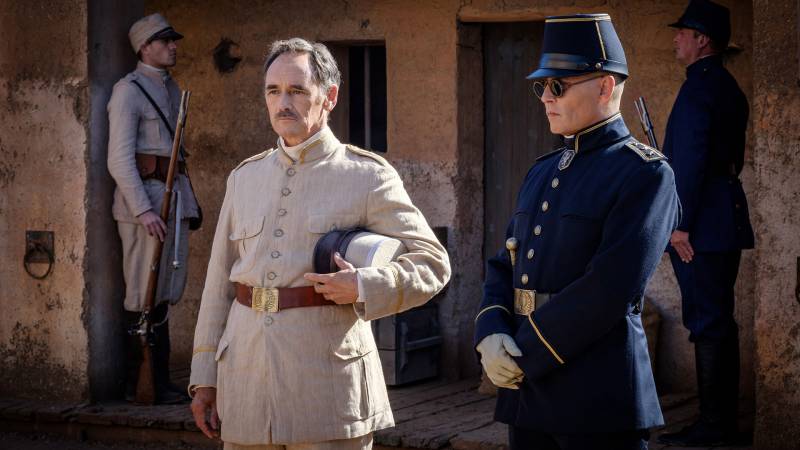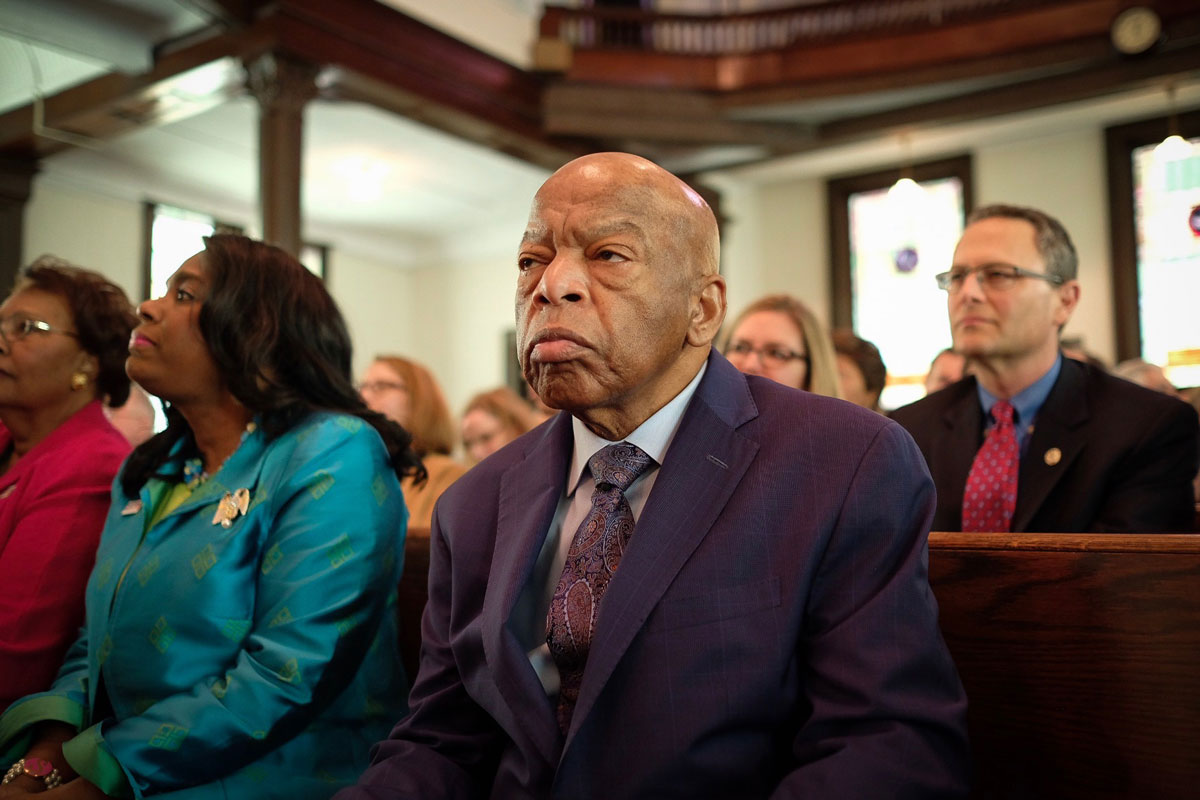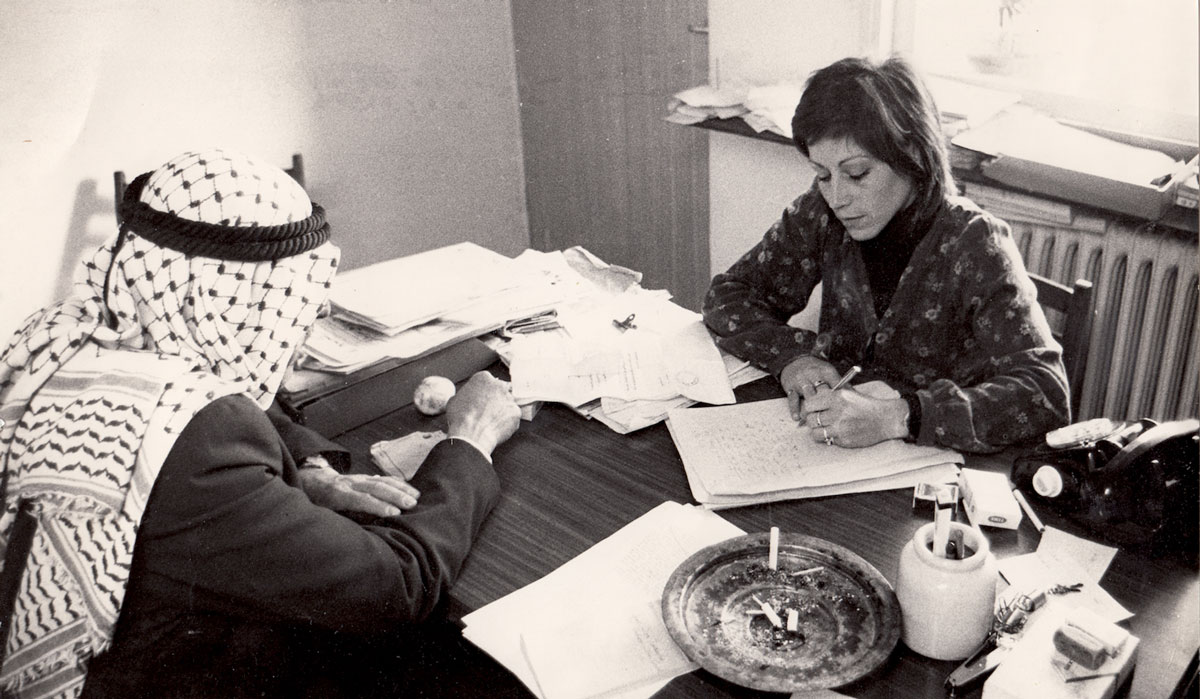Hollywood studios routinely hoard movies for adults—a.k.a. Oscarbait—until the fall and winter. To fill the summer void, independent distributors typically stock the arthouses with films for thinking people. This year, the arthouse is in your living room.
Waiting for the Barbarians
Now playing
Smith Rafael Film Center
What we gain in ease and convenience by watching quality films at home, we lose in a diminished viewing experience. Films like those of the Colombian director Ciro Guerra (Birds of Passage, Embrace of the Serpent), in which the characters are inseparable from their environment, require our immersion. Sinking into one’s couch, however, isn’t the same as being swallowed up in a far-off world.
Guerra’s mesmerizing Waiting for the Barbarians, adapted by J. M. Coetzee from his prize-winning 1980 novel and photographed by the great Chris Menges (lured out of retirement, apparently), unfolds in a desert settlement on the edge of a far-flung empire. The magistrate (Mark Rylance) modestly administers his responsibilities as a representative of a colonial power with compassion and sensitivity. Comfortably assimilated into the local culture, he’ll be content if, one day, his short obituary acknowledges, “With a nudge here and a touch there, I kept the world on its course.”

The arrival of the chilly, cryptic Colonel Joll (Johnny Depp) signals the end of this era. A pumped-up policeman who sees enemy insurgents where the magistrate sees scattered nomads, Joll launches an expedition replete with terror and torture. “Pain is truth,” he informs the magistrate. “All else is subject to doubt.”
In an eloquent performance dripping with dignity and vulnerability, Rylance plays (to use today’s parlance) a well-meaning liberal awakening to his white privilege. Depp, in a mere handful of scenes, gives an original and frightening slant to the arrogant lawman whose concept of history doesn’t extend past two seconds ago.
The irony of Coetzee’s title becomes apparent long before the end of this beautifully crafted film. To cite cartoonist Walt Kelly’s immortal line from Pogo, “We have met the enemy, and he is us.”
Radioactive
July 24
Amazon Prime Video
As we’d expect from the director of Persepolis, Marjane Satrapi’s new biopic of two-time Nobel Prize-winner Marie Curie teems with structural, visual and thematic ideas. But most viewers’ reaction will depend on their affection for Rosamund Pike, who plays the brilliant, intransigent scientist who discovered radium and polonium with her husband, Pierre (Sam Riley).
I find Pike, who portrayed war correspondent Marie Colvin (another relentlessly independent woman) in the little-seen A Private War, to be all surfaces; she’s technically skilled but unable to convey basic human warmth. I understand Marie Curie’s drive, sacrifice and pain from Pike’s performance, but I’m not touched by either her struggle or her successes.




